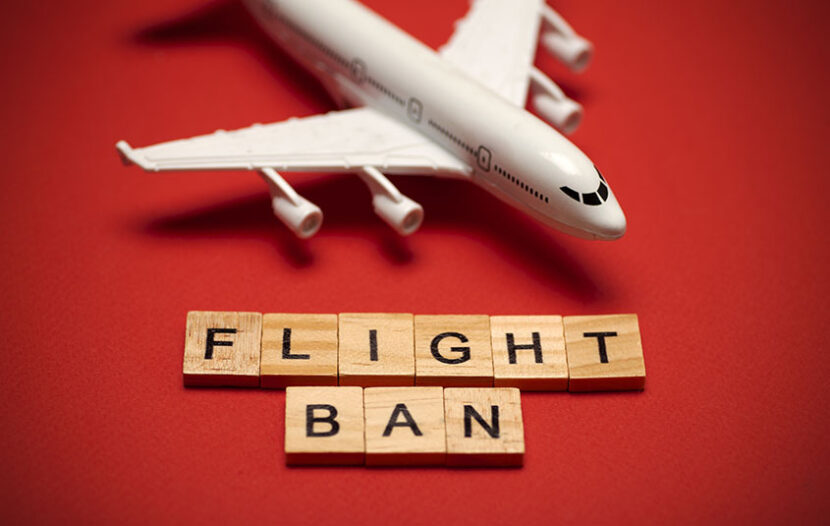BRUSSELS (AP) — Several countries moved to stop air travel from southern Africa on Friday in reaction to news of a new, potentially more transmissible COVID-19 variant.
“The last thing we need is to bring in a new variant that will cause even more problems,” said German Health Minister Jens Spahn, amid a massive spike in cases in the 27-nation European Union, which is recommending a ban on flights from southern African nations.
Within a few days of the discovery of the new variant, it has already impacted on a jittery world that is sensitive to bad COVID-19 news, with deaths around the globe standing at well over 5 million.
Medical experts, including the WHO, warned against any overreaction before all elements were clear but nations who acted said their concerns were justified. The WHO has since named the new B.1.1.529 variant ‘omicron’.
“Early indications show this variant may be more transmissable than the delta variant and current vaccines may be less effective against it,” British Health Secretary Sajid Javid told lawmakers. “We must move quickly and at the earliest possible moment,” he said.
Belgium became the first European Union country to announce a case of the variant.
“We have one case of this variant that is confirmed. It’s someone who came from abroad,” said Health Minister Frank Vandenbroucke. “It’s a suspicious variant. We don’t know if it’s a very dangerous variant.”
Israel, one of the world’s most vaccinated countries, announced Friday that it has also detected the country’s first case of the new variant, in a traveller who returned from Malawi. The traveller and two other suspected cases have been placed in isolation. It said all three are vaccinated but that it is currently looking into their exact vaccination status.
Speaking before the EU announcement, Dr. Michael Ryan, the head of emergencies at the WHO said that “it’s really important that there are no knee-jerk responses. We’ve seen in the past, the minute there’s any kind of mention of any kind of variation and everyone is closing borders and restricting travel. It’s really important that we remain open, and stay focused,” Ryan said.
The Africa Centers for Disease Control and Prevention agreed and it “strongly discourages the imposition of travel ban for people originating from countries that have reported this variant,” it said in a statement. It added that “over the duration of this pandemic, we have observed that imposing bans on travellers from countries where a new variant is reported has not yielded a meaningful outcome.”
Those urgings quickly fell on deaf ears.
The U.K. announced that it was banning flights from South Africa and five other southern African countries effective at noon on Friday, and that anyone who had recently arrived from those countries would be asked to take a coronavirus test.
Germany said its flight ban could be enacted as soon as Friday night. Spahn said airlines coming back from South Africa will only be able to transport German citizens home, and travellers will need to go into quarantine for 14 days whether they are vaccinated or not.
Germany has seen new record daily case numbers in recent days and passed the mark of 100,000 deaths from COVID-19 on Thursday.
Italy’s health ministry also announced measures to ban entry into Italy of anyone who has been in seven southern African nations – South Africa, Lesotho, Botswana, Zimbabwe, Mozambique, Namibia and Eswatini – in the past 14 days due to the new variant. The Netherlands and the Czech Republic are planning similar measures.
The Japanese government announced that from Friday, Japanese nationals traveling from Eswatini, Zimbabwe, Namibia, Botswana, South Africa and Lesotho will have to quarantine at government-dedicated accommodation for 10 days and do a COVID test on Day 3, Day 6 and Day 10. Japan has not yet opened up to foreign nationals.
Currently identified as B.1.1.529, the new variant has also been found in Botswana and Hong Kong in travellers from South Africa.
The WHO’s technical working group is to meet Friday to assess the new variant and may decide whether to give it a name from the Greek alphabet. It says coronavirus infections jumped 11% in Europe in the past week, the only region in the world where COVID-19 continues to rise. The WHO’s Europe director, Dr. Hans Kluge, warned that without urgent measures, the continent could see another 700,000 deaths by the spring.
WHAT PREMIER FORD IS SAYING
Meanwhile Ontario Premier Doug Ford is calling for stronger border measures in light of a new COVID-19 variant amid fears it may be more transmissible.
Ford says he wants the federal government to ban flights and passengers from “countries of concern” until it’s determined that vaccines protect against the variant.
He says people who arrive before a proposed ban is implemented should be tested and forced to quarantine, including people who arrive today.
He is also calling for point-of-arrival testing for all passengers arriving in Canada.
Public Health Ontario says the variant has not been detected in Ontario.
With file from The Canadian Press

